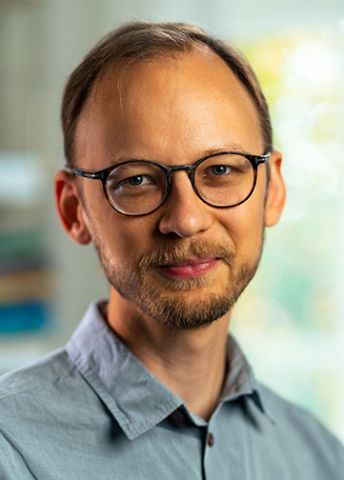
Program for mathematics 2022
Grant to recruit an international researcher
for a postdoctoral position
Professor David Rydh
Department of Mathematics, KTH Royal Institute of Technology
Grant to recruit an international researcher
for a postdoctoral position
Professor David Rydh
Department of Mathematics, KTH Royal Institute of Technology
Taming stacks with new concepts
Professor David Rydh will receive funding from the Knut and Alice Wallenberg Foundation to recruit an international researcher for a postdoctoral position at the Department of Mathematics, KTH Royal Institute of Technology, Stockholm.
David Rydh’s project concerns moduli theory, an important and very active area of algebraic geometry. Over the last twenty years it has aroused great interest, not least through the influence of theoretical physics and string theory.
A moduli problem involves classifying geometric objects such as lines, curves and surfaces. A geometric solution to a moduli problem is a moduli space, where each point in the space is equivalent to a class of geometric objects. Studies of the geometry of the moduli space provide new insights into the objects being classified. These geometric objects often have various symmetries, giving the moduli space a more complicated geometric structure – it becomes a stack. The project intends to provide several new perspectives on moduli theory and the theory for stacks, using five concepts recently introduced by Rydh.
Four of the new concepts are different types of blow-ups, which are tools used in algebraic geometry to modify or compare geometric objects. An important part of Rydh’s project relates to the geometry of Deligne–Mumford stacks. Here it is essential to modify stacks in a controlled manner, to allow the comparison of similar stacks. For this purpose, Rydh has developed various types of “stacky” blow-ups that can be used to close stacks (almost like putting a lid on a jar) and to remove and add “stackiness”, which is what comprises the difference between classic geometric objects and stacks. A wealth of as-yet unanswered questions and applications are now waiting to be explored using new types of blow-ups.